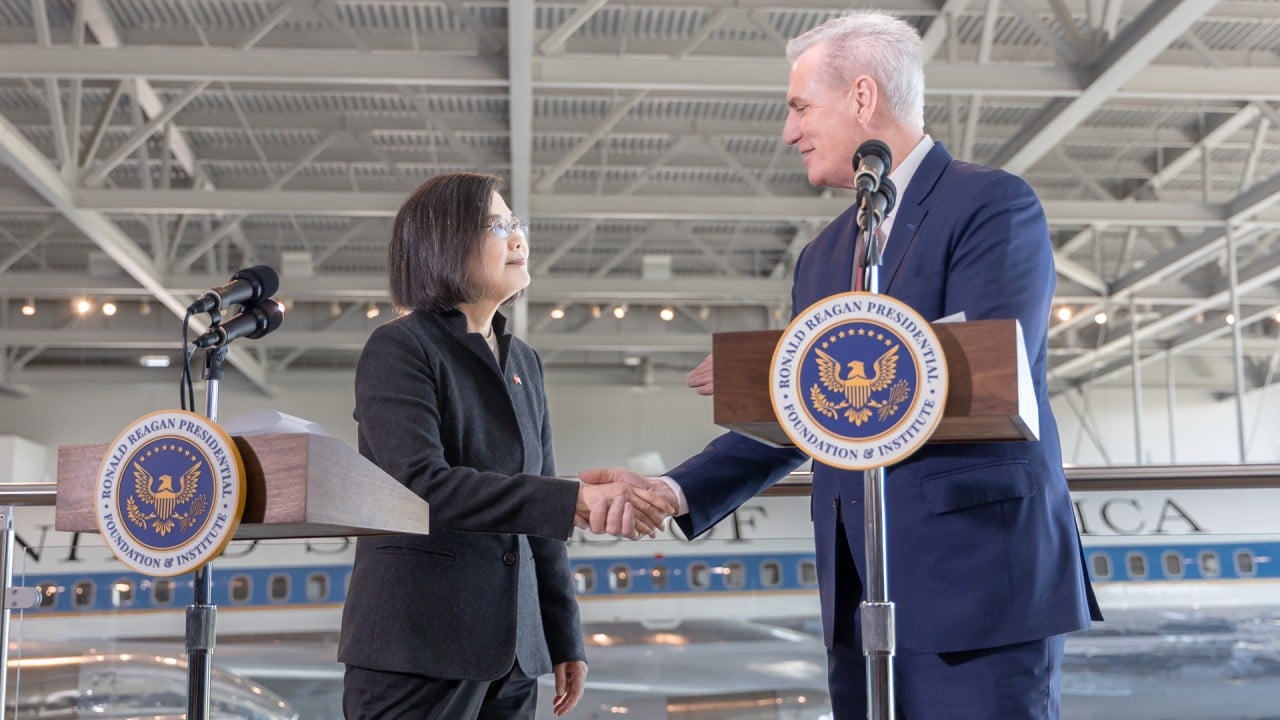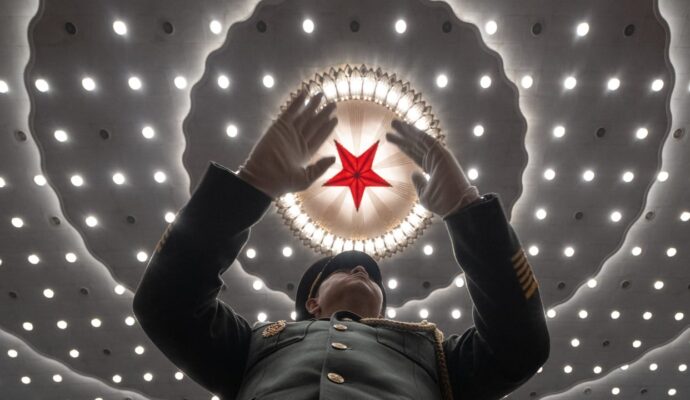Along with the Cairo Declaration of November 1943, the document outlined the terms for Japan’s “unconditional surrender” two months before the end of the war, terms that included restoring Taiwan and other Chinese territories taken by Japan.
After a brief tour of the site of the 1945 gathering on Wednesday, Qin said the Potsdam Conference “holds special historical importance for the Chinese people”.
“The Potsdam Proclamation issued after the conference reaffirmed the Cairo Declaration that China’s territory, including Taiwan, stolen by Japan, should be returned to China,” state news agency Xinhua quoted him as saying.
“‘Taiwan independence’ is a challenge to international justice and order, and runs counter to the tide of history, which is doomed to fail.”
It is not the first time China’s new foreign minister has tried to invoke the wartime treaties to defend Beijing’s claim over Taiwan.
“Taiwan’s return to China is a component of the post-war international order, written in black and white in the Cairo Declaration and the Potsdam Proclamation,” Qin said in a speech in Shanghai last month.
“China will not lose any part of its territory that has been restored. And the established post-war international order will not be upended.”
Beijing sees Taiwan as a breakaway province and has refused to renounce the use of force to “reunify” the island.
Most countries, including the US, do not recognise the self-governed island as an independent state. However, many countries are opposed to any attempt to take back the island by force.
Over the past two decades, Chinese leaders and top diplomats have frequented the German city to hammer home Beijing’s message about pursuing reunification with Taiwan, including the 2003 trip by former president Jiang Zemin and one in 2013 by former premier Li Keqiang. President Xi Jinping also visited Potsdam in 2009 when he was vice-president.
But Qin appeared to have another pointed message for Washington with his visit to Potsdam this week.
“Today, the United States claims to uphold the rule-based international order, but it has left the Potsdam Proclamation drafted by itself behind to support and connive at secessionist activities seeking ‘Taiwan independence’, to disrupt the post-war international order and to undermine China’s sovereignty and security,” he said.
“This is unacceptable to the Chinese people.
“We must remember the warning that history has given us: the post-war international order must be safeguarded. International fairness and justice must be served.”
Analysts said Qin’s remarks were a response to efforts by the US and its allies to portray China as a revisionist power trying to unilaterally alter Taiwan’s status quo and challenge the existing rules-based order led by Washington.
Pang Zhongying, a professor of international affairs at Sichuan University, said Qin’s trip to Potsdam was a carefully staged move by Beijing amid escalating tensions over Taiwan.
“Beijing has clearly hoped to seek empathy and understanding from its German host, which has been through the journey of seeking unification after being divided following the second world war,” he said.
But, Pang said, despite differences in the West on how to deal with a rising China, Germany and other European countries largely shared US concerns about China’s intention to upend the post-war order, especially in the wake of Russia’s invasion of Ukraine.
“[The Potsdam visit is] a well-intended move, but it may not get anywhere because it is not a good time for Germans and other Europeans to accept Beijing’s messaging about who should be blamed for the disruption of the post-war international order,” he said.
“Nevertheless, Qin’s interpretations of relevant international treaties are an opportunity for Beijing to have meaningful discussions with other countries and a real dialogue would be helpful to advance China’s stance and interests.”
China critics, mostly in the US and Taiwan, have insisted that both documents issued in Cairo and Potsdam should not be seen as treaty commitments to settle the dispute over the island, because they failed to clarify Taiwan’s status.
They often argue that the Cairo Declaration restored Taiwan to the government of the Republic of China – which moved to Taiwan after 1949 – instead of the People’s Republic of China, which had not been established when the document was issued.
They also criticise China’s alleged selective acceptance of some international treaties, while rejecting others, such as the San Francisco treaty of 1951, which reestablished ties between Japan and the US-led allied forces. Neither mainland China nor Taipei signed the treaty.



